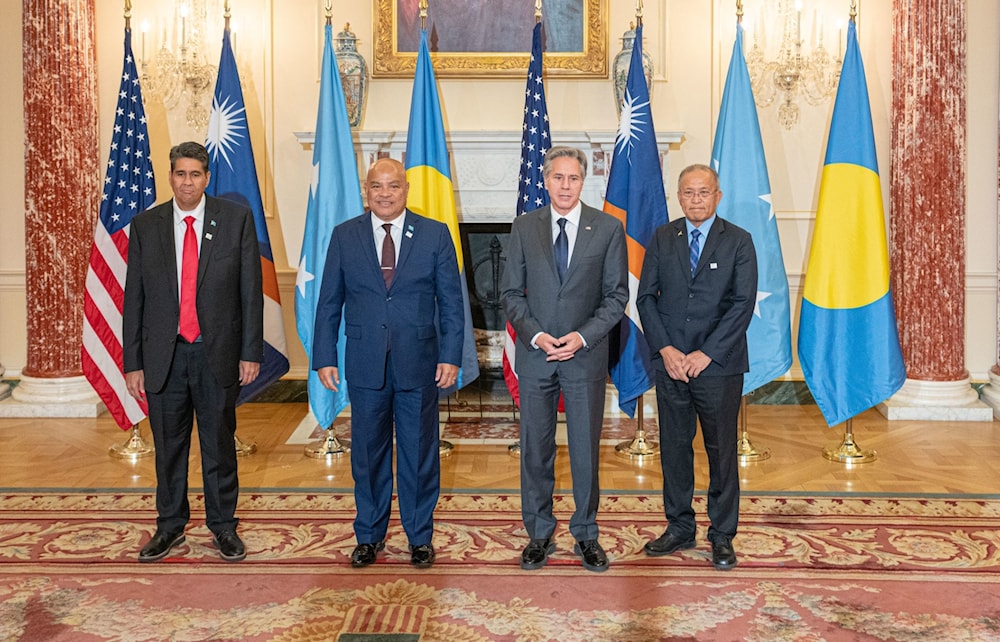US Congress allocates $7.1Bln to renew Pacific military presence
As per the COFA agreement, the US has the right to deploy missiles, early radiolocation radars, and conduct intercontinental ballistic missile tests on the three islands.
-

Secretary of State Antony J. Blinken meets with then-President of the Republic of the Marshall Islands David Kabua, then-President of the Federated States of Micronesia David Panuelo, and President of Palau Surangel Whipps Jr. at the US Department of State in Washington, D.C., on September 29, 2022 (State Department)
As part of an initiative to expand military influence and counter China's rise in the Pacific, the US Congress has greenlighted $7.1 billion of financial support for the Pacific Island countries of Palau, the Marshall Islands, and the Federated Republic of Micronesia.
The funds are part of a $460 billion package passed by the Senate to avert a government shutdown. It will be disbursed for the next 20 years under the Compacts of Free Association (COFA) agreement.
This agreement was initiated in 1980 and is intended to provide exclusive access to the US military in the three island nations.
"The investment serves our mutual interests in pushing back on the Chinese Communist party’s aggressive regional designs," US Senator Dan Sullivan told the news outlet.
Thrilled the Senate passed legislation related to the Compacts of Free Association with the Freely Associated States. These large ocean states are vital partners of the U.S., and Congressional approval is an important signal to the region about America’s commitment. #FASFORWARD pic.twitter.com/2lLGV8IjLS
— Taylor Ruggles (@TVRuggles) March 9, 2024
Despite the area of the three islands being relatively small in size, when combined they span 4,000 kilometers (2,485 miles) across the Pacific.
As per the COFA agreement, the US has the right to deploy missiles, and early radiolocation radars, and conduct intercontinental ballistic missile tests in the three territories.
During the 1950s and 1960s, the US conducted a number of nuclear tests on one of the three island nations, namely the Marshall Islands. These tests had resulted in disastrous outcomes on the environment, specialists from the Office of the United Nations High Commissioner for Human Rights (OHCHR) revealed.
Read more: Solomon Islands PM asserts decline of US hegemony in Pacific
A few weeks ago, news reports suggested that delays in US financial assistance were puttin its relations with Pacific nations at risk.
In emails to The Guardian, the president of the Republic of the Marshall Islands, Hilda Heine, said, “Members of the Congress have to understand that the funds that the US has agreed to provide … did not come because of the generosity of the US government and its citizens, but rather because of hard negotiations between the parties."
"At the moment [the US-Marshall Islands relationship] is gradually being destroyed by party politics in the US Congress," she added.

 2 Min Read
2 Min Read










